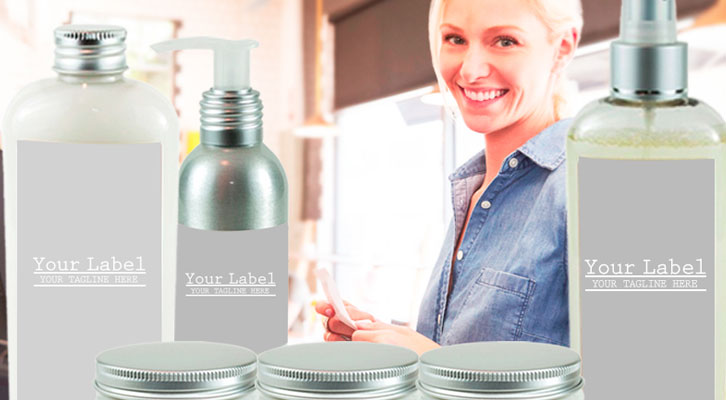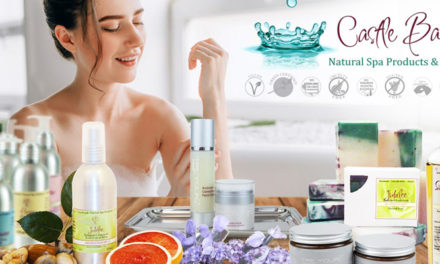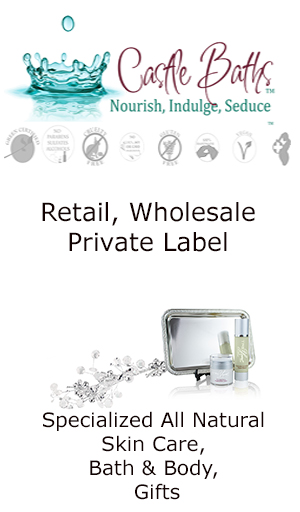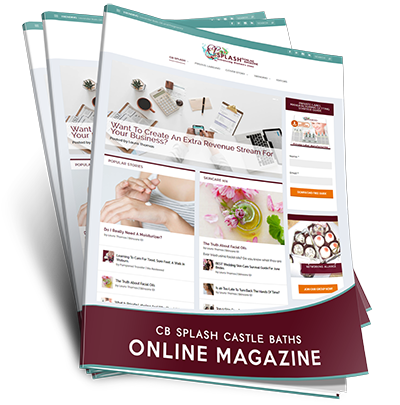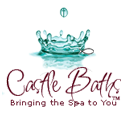Have you ever considered creating your own line of products for your business?
Maybe you’ve thought about it, but had no idea where to start. Or perhaps you assumed it would be way too expensive and not something you could do right now. Private labeling might just be the answer you were looking for. In this article I am going to clearly define what private label manufacturing is and how you can use it to create a new revenue stream for your business.
What Is Private Labeling?
Private labeling, put quite simply, is selling products that are manufactured by another company with your company’s brand on the product labels. It is also known as “white labeling,” “badge engineering,” or “rebadging.”
You might be thinking, “Whoa… wait a minute! That sounds a little sketchy… like those companies that make knockoffs of Coach™ purses or Nike™ athletic wear. Is that even legal?” Yes, it is! And this process encourages profit and business growth for you, and the manufacturer, with little cost to you. Let’s look at an example of private labeling that you’re probably already familiar with.
I’m sure when you go grocery shopping you have probably noticed that your store has a brand. For example, one of Wal-Mart’s bigger store brands is called Equate. Equate is the private label that is put on a wide variety of personal care products in Wal-Mart stores. These items are made by a larger manufacturer. But Wal-Mart specifies what goes into the products, how they are packaged, and what the labels should look like… including the logo and brand colors. They chose a more generic direction for the packaging to attract the audience they are serving.
However, don’t let the generic packaging fool you! Equate is a prime example of the strength of Walmart’s private label store brand. This is just one of many private labels within Wal-Mart. They can offer you their brand at a slightly lower cost than if you were to buy it directly from the manufacturer. The quality is the same or sometimes even better than the competition.
AND retailers aren’t just using private label products to offer a cheaper version of brand name products! Private labeling also enables smaller retailers to carry their own store brand of premium products that rival nationally recognized brands.
So you may be wondering…
How Having A Store Brand Benefits Businesses
The first and most obvious benefit of having a store brand is profit. How much profit? Store-branded products were found to generate almost 10% more gross profit than nationally-recognized brands according to a 2009 study by the Food Marketing Institute.
The study went on to say that having a store brand helps businesses:
- Be unique and distinguish themselves from their competition
- Improve overall customer satisfaction and loyalty
- Increase profitability
As a small business owner in a highly competitive industry, you recognize the value of having satisfied, loyal customers who speak highly of you and your business, refer others to you, and continue to purchase your products and services year after year.
How Does Private Labeling Work?
By now you might be thinking, “Ok, how do I get into the private labeling game for my own business?” Private Labeling allows you to build your own brand with minimal risk to you, without breaking the bank, and it can be a very successful business move. But how do you do it? Let me break down the general process for you and what you can expect.
Private Labeling allows you to build your own brand with minimal risk to you, without breaking the bank, and it can be a very successful business move…
The first step in creating your own private label product is to identify what type of product line is appropriate for your business. You will have the greatest success selling products that are a natural extension of, or complement to, your existing products and services. For example, if you are a hairdresser, you would be most successful selling your own brand of hair care products. Similarly, an esthetician would be most successful selling her own skin care line.
Ask yourself the following questions: How is this new product line going to meet my customers’ needs? Does this product line help expand my company’s brand awareness to customers?
Next, you need to find a manufacturer you can trust, one who has the expertise to manufacture the type of product line you are looking for. This is probably the hardest part of the process. Especially if you are new to the private label game, you probably don’t know where to start. Where do you find private label manufacturers?
Don’t worry! We’ve made it easy for you! Download our Private Label Manufacturing Getting Started Guide below. It includes a checklist of questions you need to ask the prospective manufacturer, resources to find various manufacturers, and answers to your toughest questions.
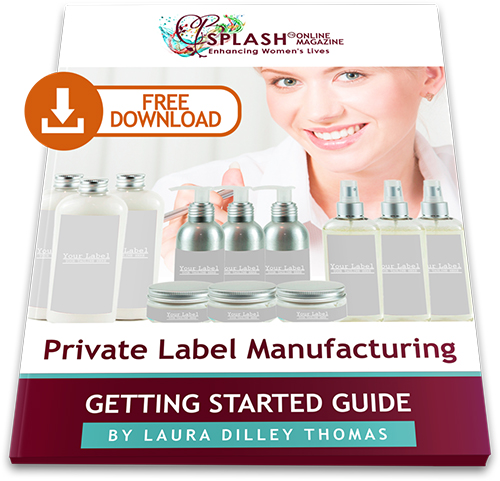
Once you have identified a manufacturer you are going to work with, you will need to understand their requirements. What are the minimum order requirements? What are the wholesales costs for creating each product? What does that mean for your margins, and how much will you need to charge for each product to make a profit? How long is the turnaround from the time you place your order to the time it ships and is received by you?
Finally, you will need to give direction on the packaging design for your new private label products. Some manufacturers will help you with this part of the process. Others will not. This includes the shape of the bottles, design of the labels, and finally the design of the outside packaging if your product is going to be in a box for example.
Private Labeling Is Not Right for Every Business
It’s true. Although adding a private label product line can be an excellent way for many companies to expand their brand image and create additional streams of income, it isn’t the right choice for everyone. So how can you tell if it’s the right move for you?
Let’s take a look at who the ideal customers are for private label product lines.
- Small business owners looking to grow their product line by adding new category extensions that align with their company’s values and ethos.
- Business owners looking to create an extra stream of income by creating a new product line.
- Boutique owners looking to create exclusive, unique products that maintain their own brand aesthetic and quality.
- Professionals looking to stand out from the competition by offering exclusive products that will elevate their personal brand and establish them as a brand leader and expert in their field.
- Business owners looking to create a product line that will fulfill their customers’ specific needs.
What Type Of Business Would Benefit The Most From Private Label Products?
- Boutiques with a brick & mortar presence who want to create a custom product line such as:
- Home decor shop
- Personal care product shop
- Bath and body product shop
- Specialty store
- Retail store
- Professional service providers who want to offer their customers custom products.
- Estheticians
- Dermatologists
- Hair stylists
- Massage therapists
- Nail techs
- Med Spas
- Director of Spas
- Personal Trainers (Stretch mark cream, Menthol cream)
- Cosmetologists
- Holistic healers
- Doulas/Midwives
- Dieticians/Nutrition Consultants
- Wellness studios (yoga, fitness)
Private label products enable you to send home your signature product or product line with the client to use in between visits to help with their special needs.
Carrying Your Own Product Line Benefits You and Your Customers
Let’s take on real-life scenarios. Imagine for a minute that you are an Esthetician. One day, as you are communicating with a client you find out that she has a skincare issue caused by her medication. The client explains that her skin has been drying out and she has developed sensitivities to the skincare products she used to use. We’ve all been there.
What can you do to meet the special needs of this client? With private labeling, you literally have the solution at your fingertips. You have the ability to send your exclusive product or product line home with the client for use in between visits to help with her special needs.
Let’s look at another example. Your client, who lives on the West Coast, has developed an issue with her skin caused by a sudden change in climate. At home, she has normal to dry skin and, in the dry West Coast climate, her skin requires more emollient and nutrient-rich products. But she’s flown to the East Coast to visit her friends and family, and now she’s developed oily skin that is prone to inflammation. You know that, in that wet environment, she needs a light, easily absorbed moisturizer because the climate is radically different.
Since you know precisely what ingredients are in every one of your products, it’s simple to be the expert and quickly solve her dilemma by recommending which products she needs to use when visiting on the East Coast! And you have saved the day for your client because you can address her issues when she’s at home as well as when she’s visiting.
Blog Series Links
Building New Revenue Streams With Private Label Blog Series
This article is part of a 6 part blog series designed to give you important information about building and expanding your company’s brand with the use of private label products. Learn how you can build additional revenue streams for your business with private label products. You can read the entire series by clicking the links below:
- Want To Create An Extra Revenue Stream For Your Business?
- What Is Private Labeling And Why Should You Care?
- Top 6 Myths About Private Labeling
- Top 8 Benefits To Offering Private Label Products
- Is Castle Baths The Right Private Labeling Partner For Your Business?
- Getting Started With Castle Baths To Create Your Private Label Product Line

